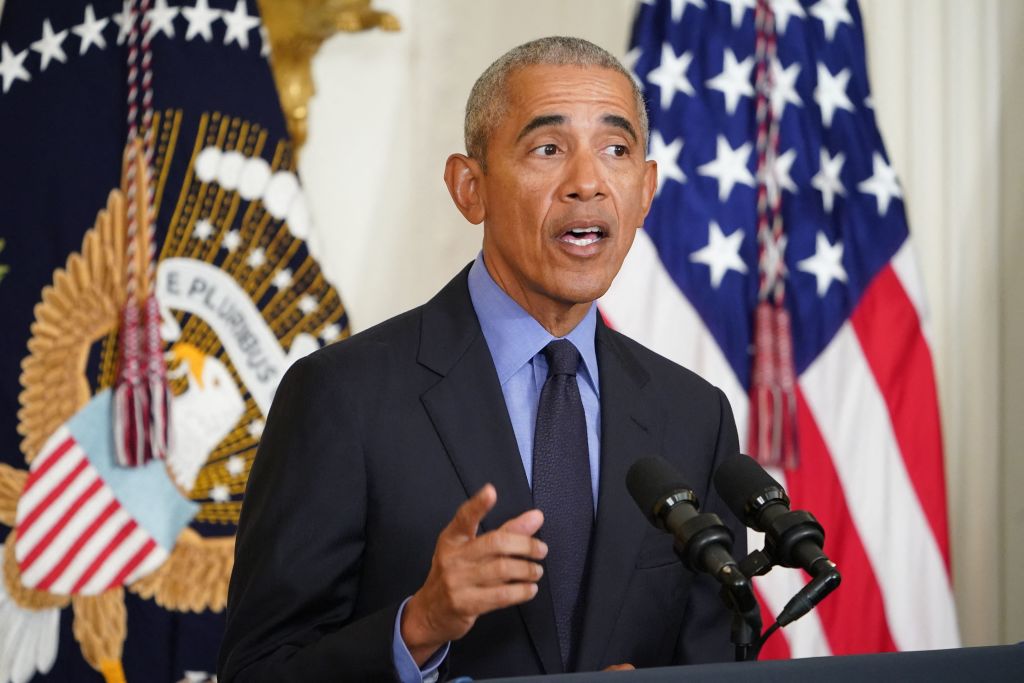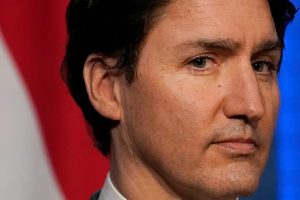Obama sets his sights on ‘disinformation’
When Obama was elected president in 2008, his campaign’s innovative use of social media to organize and fundraise was seen as central to his success. In 2012, Obama’s successful re-election campaign was heralded as an even more sophisticated technological triumph. Dozens of fawning profiles of the campaign team praised the genius deployment of “big data” and “microtargeting” to deliver victory.
Fast forward a decade and the first internet president has decided to make online disinformation the subject of a series of public appearances. The New York Times reports that “in private meetings and public appearances over the last year, the former president has waded deeply into the public fray over misinformation and disinformation, warning that the scourge of falsehoods online has eroded the foundations of democracy at home and abroad.”
The latest step in this campaign came in the form of a speech at Stanford University yesterday. After cracking some characteristically cringe dad jokes about needing help from Sasha and Malia to work his smartphone, the former president made a platitudinous speech that showed few signs that he had thought all that deeply about the subject.
Obama framed the questions of online speech with the technocratic triangulation by which he tends to frame a lot of things. Applied to “disinformation,” though, this amounted to little more than “some things on the internet are good, others are bad.” Needless to say, his examples of the good and the bad were rather self-serving. And as for the policy solution? What is needed, he argued, is more oversight, more moderation.
Absent from Obama’s speech was any concession of the dangers of overreach in the war on disinformation. No mention of the disgraceful handling of the Hunter Biden laptop story in the weeks before the 2020 election. No discussion of the difficulty of regulating speech on evolving and complicated science surrounding the pandemic. It’s easy to complain that disinformation is killing people, as Obama did over vaccine falsehoods online. It’s far harder to grapple with the awkward way in which medical guidance has gone from banned to received wisdom as scientific consensus has changed.
An irony of the debate over online speech is that partisans on both sides of the political divide often find themselves arguing for the same policy response: for government to rein in big tech. They do so, of course, for opposing reasons. The right argues that there is too much moderation, the left argues that there’s not enough.
In another irony, Obama’s call for greater oversight included the suggestion that tech companies need to be “more transparent about how they operate,” including when it comes to their all-important proprietary algorithms, mirrored free-speech hardliner Elon Musk’s recent suggestion that he make Twitter’s algorithm public if he buys the company. Needless to say, here too, the same conclusion is reached for radically different reasons.
When Obama was “microtargeting,” it was stunning electoral innovation. When Cambridge Analytica was doing the same thing (on a much smaller scale) in the UK’s 2016 EU referendum and the presidential election of the same year, it was an existential assault on democracy. British broadcaster Channel Four even described Trump’s targeting of different groups with different messages as “voter suppression.”
These double standards show why so much of the disinformation pearl-clutching isn’t worth taking seriously. Too often those who, like Obama, claim to lose sleep over the problem, seem incapable of at least acknowledging the trade offs that undoubtedly exist between preserving free speech and fighting disinformation. Which is why their quest to “save democracy” too often feels like little more than the political equivalent of complaining to the refs over a call you don’t like: not a point of deep principle, but frustration that things don’t always go your way.
*** Sign up to receive the DC Diary in your inbox on weekdays ***
McCarthy’s week from hell
If you think you’ve had a bad week, spare a thought for Kevin McCarthy. After the New York Times yesterday reported that he had considered asking Trump to resign after January 6, the House Minority Leader issued a firm denial. Then came the audio recording that confirmed the Times’s reporting. Worse than confirming the story, the clip makes clear that McCarthy was conspiring with Liz Cheney, then a member of Republican leadership, to force Trump out of office before the end of his term. “The only discussion I would have with him,” McCarthy says on the leadership call, “is that I think [a House impeachment resolution] will pass and it would be my recommendation you should resign.”
McCarthy risks finding himself caught in Republican no man’s land, stranded between Trump supporters and the anti-Trump outliers. Worse than that, he has revealed his deep cynicism and capacity for completely shameless lies.
Meanwhile, one of the reporters who obtained the audio, Jonathan Martin, told MSNBC’s Rachel Maddow last night that “we have a lot more on tape from this period, which is at the highest level of American politics, it’s sensitive, it’s delicate, and it’s high-stakes and we have it all on tape.” If McCarthy is feeling the heat this morning, there are surely other senior Republicans waiting anxiously to see who is next.
Fauci needs a civics lesson
Does America’s pre-eminent public health official need a lesson in civics? Anthony Fauci re-emerged yesterday to decry the ruling that scrapped the federal mask mandate for public transportation. In an interview with CBS’s Robert Costa, Fauci said the mandate was “not a judicial matter.” He added: “One of the problems we have there is the principle of a court overruling a public health judgment… is disturbing in the precedent that it might send.” What, exactly, is this shocking precedent, other than the idea that — as any eighth grader should be able to tell you — there are legal limits to the power of an executive agency?
What you should be reading today
Mary Kissel: Joe Biden’s new world disorder
Matt Purple: One nation under the CDC
Stephen L. Miller: CNN+ crashes and burns
Yaroslav Trofimov, Wall Street Journal: In obliterated Kharkiv, Ukrainian survivors struggle to hold out
Philip Klein, National Review: Ron DeSantis and the fight club conservatives
Brooke Sutherland, Bloomberg Opinion: The pandemic didn’t kill conventions after all
Poll watch
President Biden Job Approval
Approve: 41.0 percent
Disapprove: 53.3 percent
Net approval: -12.3 (RCP Average)
Pennsylvania Republican Senate Primary
Dave McCormick: 15 percent
Mehmet Oz: 16 percent (Franklin & Marshall)


















